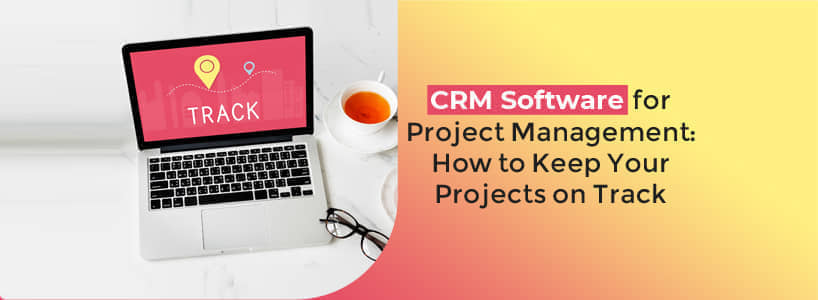CRM Software for Project Management: How to Keep Your Projects on Track

In today's fast-paced business environment, managing projects efficiently is crucial for success. Project managers often face challenges such as resource allocation, task delegation, and communication issues that can hinder project progress. However, with the right CRM (Customer Relationship Management) software, these challenges can be effectively addressed, and projects can be kept on track seamlessly.
What is CRM Software for Project Management?
CRM software for project management is a comprehensive tool that integrates customer relationship management functionalities with project planning and execution features. It allows businesses to streamline their project management processes by centralizing data, automating tasks, and facilitating collaboration among team members.
Key Features of CRM Software for Project Management:
- Centralized Data Repository: One of the primary advantages of using CRM software for project management is the centralization of project-related data. Everything from client communications to project timelines and resource allocation can be stored in one place, providing a holistic view of the project's progress.
- Task Management: CRM software allows project managers to create, assign, and track tasks effortlessly. Team members can access their tasks, update their progress, and collaborate with others, ensuring everyone stays aligned and productive.
- Resource Allocation: With CRM software, project managers can allocate resources efficiently based on project requirements and team availability. This helps in optimizing resource utilization and avoiding overloading or underutilization of resources.
- Communication Tools: Effective communication is vital for project success. CRM software offers communication tools such as messaging, file sharing, and commenting features that enable seamless collaboration and information sharing among team members.
- Reporting and Analytics: CRM software provides robust reporting and analytics capabilities, allowing project managers to track key performance indicators, identify bottlenecks, and make data-driven decisions to improve project outcomes.
How CRM Software Keeps Projects on Track:
- Improved Collaboration: By providing a centralized platform for communication and collaboration, CRM software ensures that team members are always on the same page. Real-time updates, file sharing, and instant messaging facilitate efficient teamwork and decision-making.
- Task Automation: CRM software automates repetitive tasks such as reminders, notifications, and follow-ups, reducing manual effort and minimizing the chances of missed deadlines or overlooked activities.
- Resource Optimization: With features like resource scheduling and workload balancing, CRM software helps in optimizing resource allocation, ensuring that the right people are assigned to the right tasks at the right time.
- Timely Reporting: By generating customizable reports and dashboards, CRM software provides project managers with insights into project progress, budget utilization, and potential risks. This enables proactive risk management and timely interventions to keep projects on track.
In conclusion, CRM software plays a crucial role in keeping projects on track by improving collaboration, automating tasks, optimizing resource allocation, and providing timely insights through reporting and analytics. Businesses that leverage CRM software for project management can enhance productivity, minimize risks, and achieve successful project outcomes in today's competitive landscape.
5 thoughts on "CRM Software for Project Management: How to Keep Your Projects on Track"
-
28 June, 2024 at 12:06 amGreat job! Your expertise really shines through in this article.
-
28 June, 2024 at 12:06 amThis is such a well-written blog post!
-
28 June, 2024 at 12:06 amA refreshing take on the topic discussed here!
-
27 June, 2024 at 10:31 pmI feel so inspired after reading this. Thank you for sharing your knowledge
-
15 April, 2024 at 12:26 pmSuch a valuable post! Thanks for sharing your knowledge with us
Add a Comment
Your email address will not be published. Required fields are marked *
Categories
Popular Posts
![A Principals Guide to Managing Schools Efficiently with EduAutomate ERP [thumb]](https://blogimages.weblink.in/a-principal-s-guide-to-managing-schools-efficiently-with-eduautomate-erp-350x128.jpg)
A Principals Guide to Managing Schools Efficiently with EduAutomate ERP
Running a school today is no longer limited to academics alone. Principals are expected to manage administration, sta...
![Manage Products & Services Seamlessly with CRM Inventory Integration [thumb]](https://blogimages.weblink.in/manage-products-services-seamlessly-with-crm-inventory-integration-350x128.jpg)
Manage Products & Services Seamlessly with CRM Inventory Integration
In today’s fast-paced business environment, managing products and services efficiently is crucial for maintaining com...
![The Rise of AI-Enabled School ERP: What EduAutomate Does Differently [thumb]](https://www.weblink.in/static/images/blog-no-image.jpg)
The Rise of AI-Enabled School ERP: What EduAutomate Does Differently
The education sector is undergoing a rapid digital transformation, and at the center of this change is the growing ad...